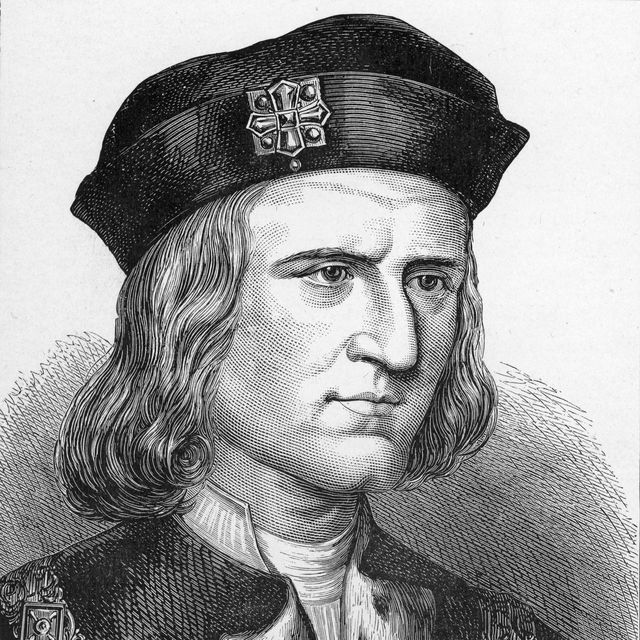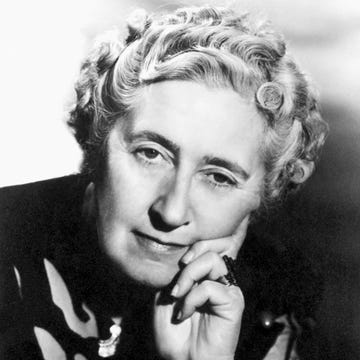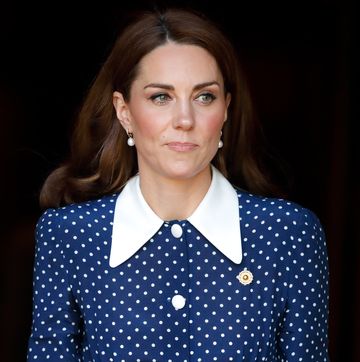(1452-1485)
Who Was Richard III?
Richard III served as king of England for only two years, but his reign was one of the most historic and turbulent. He is credited with the responsibility for several murders, including those of his nephews Edward and Richard, and of Henry VI. William Shakespeare portrayed him as a tyrannical ruler in his play, King Richard III, but modern scholars have pointed to evidence that Richard III was a successful leader.
Early Life
Born in Northamptonshire, England, on October 2, 1452, King Richard III remains one of England's most infamous rulers. Modern scholars, however, question how much his bad reputation is true and how much is myth. Richard arrived into this world with little expectation that he would win fame or claim power. He was the youngest surviving son of Richard Plantagenet, 3rd Duke of York, and his wife, Cecily Neville. It is thought that Richard spent his early years at Fotheringhay Castle in Northamptonshire.
Richard III was a child when his family, the House of York, engaged in battle against the Lancastrians for control of the country. This long and bloody civil conflict is known as the War of the Roses. Richard lost his father, an uncle and one of his brothers in December 1460 battling for the crown. Another brother, Edward IV, scored an impressive victory against King Henry VI, and his Lancastrian supporters the following February.
When Edward IV officially took power in March 1461, young Richard became a prince. He was also granted the title "Duke of Gloucester." When he was old enough, Richard assumed the rights and responsibilities with his noble status.
Political Turmoil
In 1469, the War of the Roses resumed with Richard's brother losing power in 1470. King Henry VI resumed his reign only briefly, however. Edward IV was back on the throne the following year. His loyalty to his brother Edward during this time brought Richard great rewards, including lands that once belonged to those who rose up against the king. He also was able to marry Anne Neville, the daughter of the earl of Warwick, and gain a share of her substantial wealth. Richard and Anne only had one child together, a son named Edward, around 1476.
In the early 1480s, Richard III distinguished himself in battle. He helped his brother invade Scotland and received an area of Cumberland and the right to other lands for his efforts. His role in the campaign against Scotland had increased Richard III's prominence and power.
Rise and Fall of King Richard III
When King Edward IV died in 1483, his oldest son took power as Edward V — the new king was only 12 years old at the time. As his uncle, Richard III wrestled control from his nephew in May 1483. He had himself appointed the king's lord protector, which allowed him to run the government.
Richard also set into motion other plans to ensure that he could usurp the crown. Both Edward V and his younger brother Richard were taken into Richard III's custody. The two boys were imprisoned in the Tower of London where they spent the remainder of their days. Lord Hastings, a trusted adviser to King Edward IV, was executed on charges of treason. On July 6, 1483, Richard III officially became the country's new king.
Despite his hard-fought efforts, Richard III only enjoyed a brief stint as monarch. He did make some attempts to ease tensions with the Lancastrians, allowing the relocation of Henry VI's remains to St. George's Chapel. He also sought to improve relations with Scotland by agreeing to a ceasefire. Despite his efforts, however, Richard III still found himself fighting hard against his adversaries to hold on to the crown. On August 22, 1485, he lost his life in the Battle of Bosworth; he was defeated by Henry Tudor, who would later become King Henry VII.
Over the years, Richard III has been portrayed as a brutal, cold-hearted villain. Shakespeare wrote an entire play about this allegedly hunch-backed monarch: King Richard III. Since then, many famous actors have played him on stage and in films, including Laurence Olivier and Al Pacino.
Recent News
In September 2012, a team of archaeologists from Leicester University uncovered a body believed by some to be the remains of Richard III. The skeleton was uncovered at the former site of the Grey Friars church in Leicester, where Richard III was reportedly buried. The church had been destroyed in the 1530s, and the site had been a car parking lot in recent times.
The recovered skeleton showed two remarkable similarities to Richard III. The deceased had died of a head injury received in battle and had "spinal abnormalities," according to a Reuters report. DNA samples were taken from the remains to be compared against a known descendant of Richard III's sister. In February 2013, the DNA results were revealed and verified the archaeological team's suspicions: The remains did, in fact, belong to Richard III.
Shortly after the news broke, plans began for the body of the last Plantagent king to be re-interred. In March 2015, after a funeral that included a solemn ceremony filled with royal pageantry, Richard III was ultimately laid to rest at Leicester Cathedral, not far from the archaeologist's site and where he met his grisly end. “The reinterment of King Richard III is an event of great national and international significance,” Queen Elizabeth II said, “Today, we recognize a king who lived through turbulent times and whose Christian faith sustained him in life and death.”
QUICK FACTS
- Name: Richard
- Birth Year: 1452
- Birth date: October 2, 1452
- Birth City: Northamptonshire
- Birth Country: England
- Gender: Male
- Best Known For: Richard III was king of England for two turbulent years. He is best known for being accused of murdering his nephews to protect his throne.
- Industries
- World Politics
- War and Militaries
- Astrological Sign: Libra
- Death Year: 1485
- Death date: August 22, 1485
- Death City: Leicestershire
- Death Country: England
Fact Check
We strive for accuracy and fairness.If you see something that doesn't look right,contact us!
CITATION INFORMATION
- Article Title: Richard III Biography
- Author: Biography.com Editors
- Website Name: The Biography.com website
- Url: https://www.biography.com/royalty/richard-iii
- Access Date:
- Publisher: A&E; Television Networks
- Last Updated: October 28, 2021
- Original Published Date: April 2, 2014












